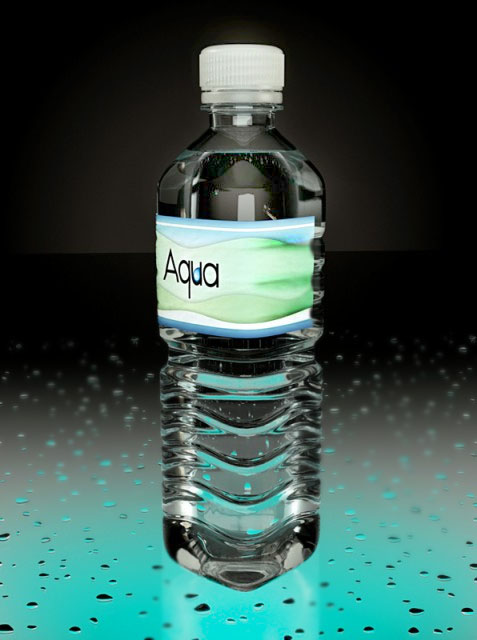Water Bottle
-
@hieru said:
No problem. I was originally going to post it to your thread, but I didn't think it was 'simple' enough.
impressive is a good excuse not to be simple

-
I can see what you mean now Brooke. I could probably rearrange some of the lights and reflectors so that the waist doesn't get lost in the background, but it will be quicker and just as effective to do it in post.
The bottle does have some scratches and a subtle amount of bump, but it doesn't show up too well.........and when I increase the values it just looks unrealistic. Again, maybe that's something that I can do with PS.
-
Great modeling and rendering job!
Can you please upload file in ver. 7 SU.
Thanks -
I like the realism of the cap and the water.
-
-
Great work David.
-
What engine did you render with? The cap plastic material is spot-on. (I was just trying to do a similar material recently in vray, so curious how you got there.)
-
Thanks Eric

@andybot said:
What engine did you render with? The cap plastic material is spot-on. (I was just trying to do a similar material recently in vray, so curious how you got there.)
I used Thea. I'm not sure if there is any similarity in the material system, but the cap plastic is just a basic clear glass with 20% Roughness and 40% Roughness Tr.
-
@hieru said:
I used Thea. I'm not sure if there is any similarity in the material system, but the cap plastic is just a basic clear glass with 20% Roughness and 40% Roughness Tr.
Thanks for that I was wondering also.
-
Cool, thanks! Yes, the transmission and specular roughness parameters make sense.
edit: - oh yeah, another question - did you model the water as a separate object?
-
The only part of the water that is separate is the top surface. That surface has one water material applied to it and the part of the bottle below the top surface has another material applied, which you have to assign a container material (in this case the plastic used for the rest of the bottle).
There's a really useful diagram over on the Thea forum, but I can't find it at the moment.
-
-
@hieru said:
The only part of the water that is separate is the top surface. That surface has one water material applied to it and the part of the bottle below the top surface has another material applied, which you have to assign a container material (in this case the plastic used for the rest of the bottle).
There's a really useful diagram over on the Thea forum, but I can't find it at the moment.
http://www.thearender.com/forum/viewtopic.php?f=54&t=5817&hilit=glass+liquid
I don't know if you must be logged in first to read the post...
-
Frederik's diagram on that thread is pretty good and Notareal provides some useful variations, but I thought all the options might be a bit confusing.
-

Just some post pro to see what you think. The DOF simulation and opening up the tones in the top of the bottle are the most important effects. -
Thanks for that Roger - I had completely overlooked the possibility of using a little DOF.
-
@hieru said:
Frederik's diagram on that thread is pretty good and Notareal provides some useful variations, but I thought all the options might be a bit confusing.
Keep in mind that the posted Frederik's diagram is for Kerkythea. Even as models needs to be split a bit similarly in Thea, same diagram does not apply. Use of "Container" is required for correct result. Study Thea example scene GlassOfWater.scn.thea (that you can find under File > Scenes > Examples). Also on said topic it's mentioned that you need to use mouse right click > Assign Interface. "Assign Interface" was replaced in some point with term "Assign Container".
Advertisement







